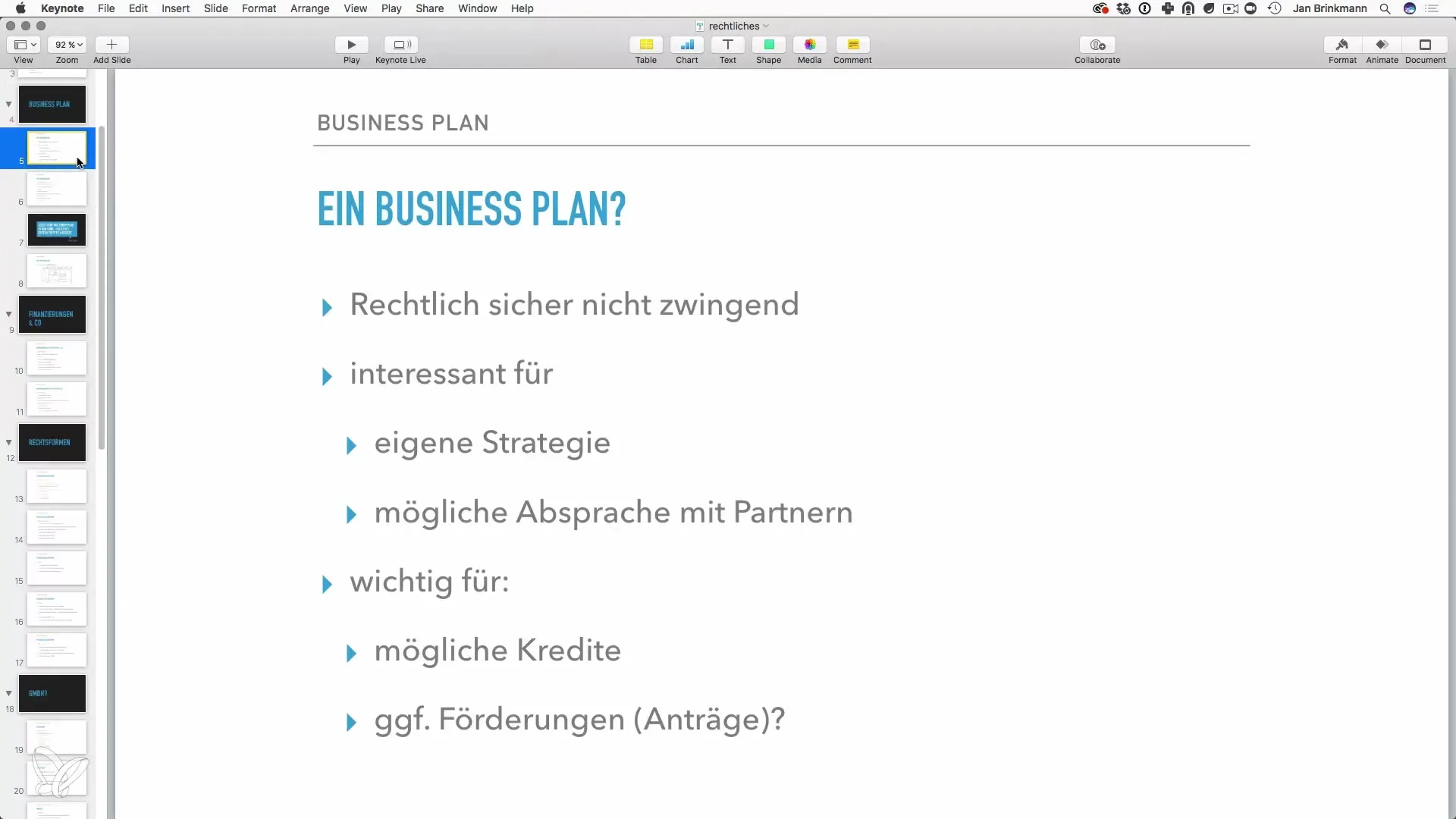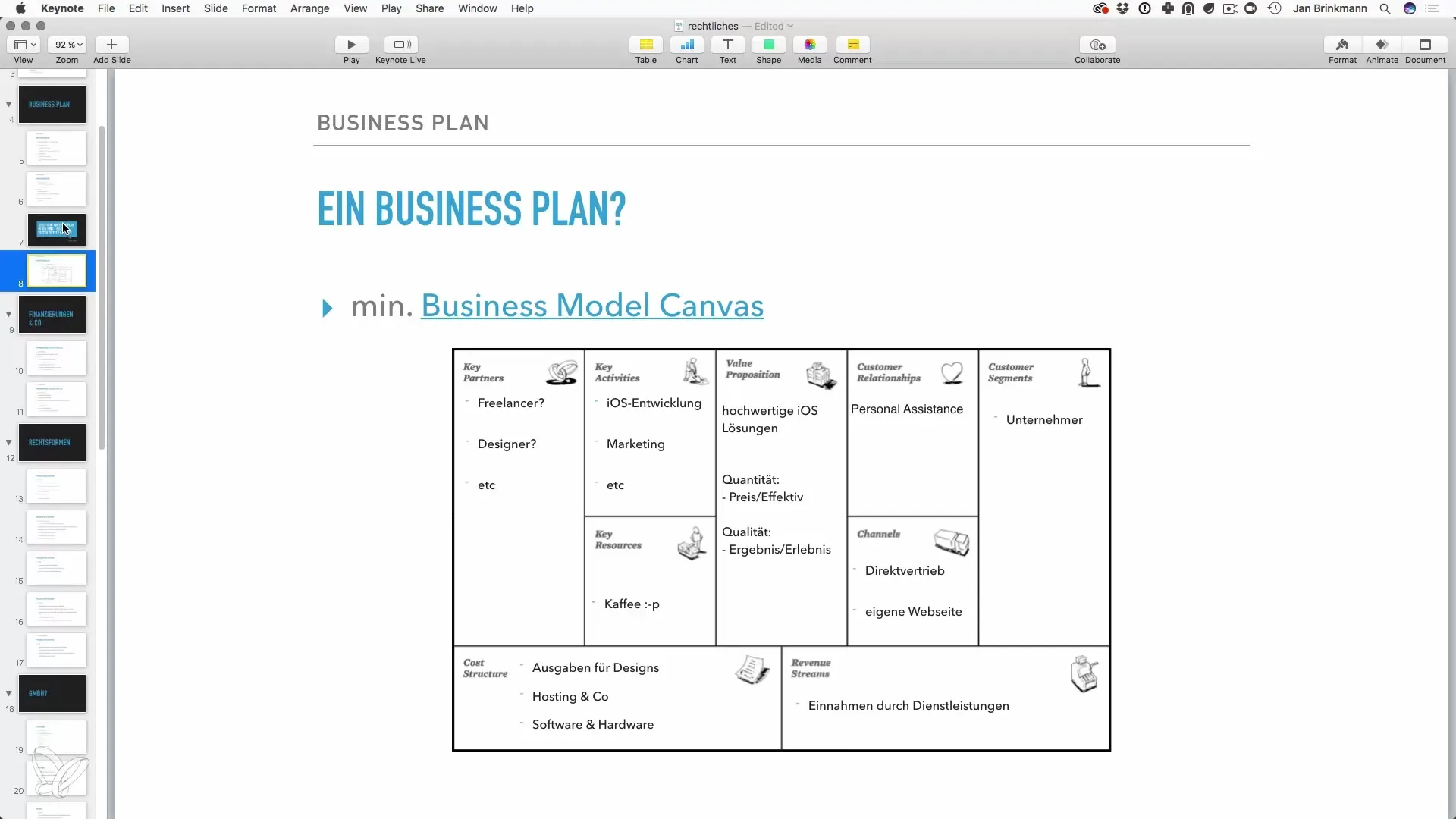A business plan is not a legal requirement for starting a business, but it plays a crucial role, especially if you want to start as a freelancer. It helps you clarify your business idea, set strategies, and present your project clearly and understandably to external partners, such as banks or investors. This guide shows you how to create an effective and well-thought-out business plan—a plan that not only assists you in developing your strategy but also serves as a valuable tool in acquiring partners or loans.
Main findings
- A business plan is a valuable strategic foundation, even if it is not legally required.
- Writing down your strategy allows you to stay focused and avoid falling into temptations.
- A well-drafted business plan is often a prerequisite for obtaining loans or funding.
- The development of a business plan should be flexible to respond to market changes.
Step-by-step guide
1. Goal definition and strategy
Before diving into creating your business plan, it's important to clearly define your goals and strategies. Consider what you want to achieve with your business and what steps are necessary to get there. You should also be aware of what services or products you want to offer and how you can differentiate yourself from the competition.

2. Market analysis
It is crucial to analyze the market in which you want to operate thoroughly. Who are your target customers? What needs do they have? What competitors exist, and what strategies are they pursuing? A clearly defined market will give you insight into where your chance of success lies. Pay attention to the strengths and weaknesses of both your own business and your competitors.
3. Concrete business idea
Your business idea must be clearly defined. What problems do you solve for your customers? What makes your offering unique? In this step, it is essential to outline your pricing strategy as well. Decide what pricing structure makes the most sense for your services or products and how it can be positioned in the market.
4. Customer acquisition and marketing strategies
How will you reach your target customers? In this section of your business plan, you should outline your marketing strategies. Which channels will you use to attract new customers for your services? Consider both digital channels, such as social media or a personal website, as well as traditional methods, such as networking events or local advertising.
5. Financing plan
The financing plan is a central component of your business plan. Here you will detail what investments are necessary to start your business as well as ongoing costs and planned revenues. These figures are particularly important if you want to apply for loans or funding. Be as precise as possible, even if you do not have exact numbers initially—estimates are acceptable at this stage.
6. Definition of risks and solutions
No business is without risk. You should be aware of the difficulties that may arise and what solution strategies you want to develop to address these challenges. Be realistic in your risk assessment and plan targeted solutions to address potential problems in advance.

7. Flexibility in the plan
A business plan is not a rigid document. Rather, it should be regularly reviewed and adjusted to respond to changes in the market or your goals. Considering that you may never start your business exactly as planned, it is essential to remain adaptable and flexible.
8. Supplementation with Business Model Canvas
The Business Model Canvas is a visual tool that can help you present the various aspects of your business clearly. Instead of a long document, you can capture the essential points of your strategic considerations on a single page. It is divided into key partner models, key activities, resources, value propositions, customer relationships, market segments, distribution channels, and cost and revenue sources.
9. Creation and presentation
The final step is the formal creation of your business plan. Ensure that it is well-structured and easy to read. Graphics and diagrams can help communicate your ideas more clearly and appealingly. Make sure you have summarized all the important information and that your plan is understandable and appealing to both you and a potential investor.
Summary – Business plan for freelancers: Your guide to success
A carefully crafted business plan is the key to success for any freelancer. It helps you articulate your goals and analyze the market. By clearly laying out your strategies and financial considerations, you are better positioned to establish yourself in competitive markets. A well-structured plan not only provides you with a solid foundation but is also a valuable document when engaging with external partners or funders.
Frequently Asked Questions
What is a business plan?A business plan is a strategic document that outlines the goals, strategies, and financial planning for a business.
Do I need a business plan to start as a freelancer?A business plan is not legally required but can be crucial for the success and structuring of your business.
How detailed should my business plan be?Your business plan should be as detailed as necessary to clearly outline your strategies, but it should not be overloaded.
Can I change my business plan at any time?Yes, your business plan should be flexible and adjusted to changes in the market or in your goals.
How can a Business Model Canvas help?The Business Model Canvas is a visual representation of your business strategy that helps you present all key elements clearly.


